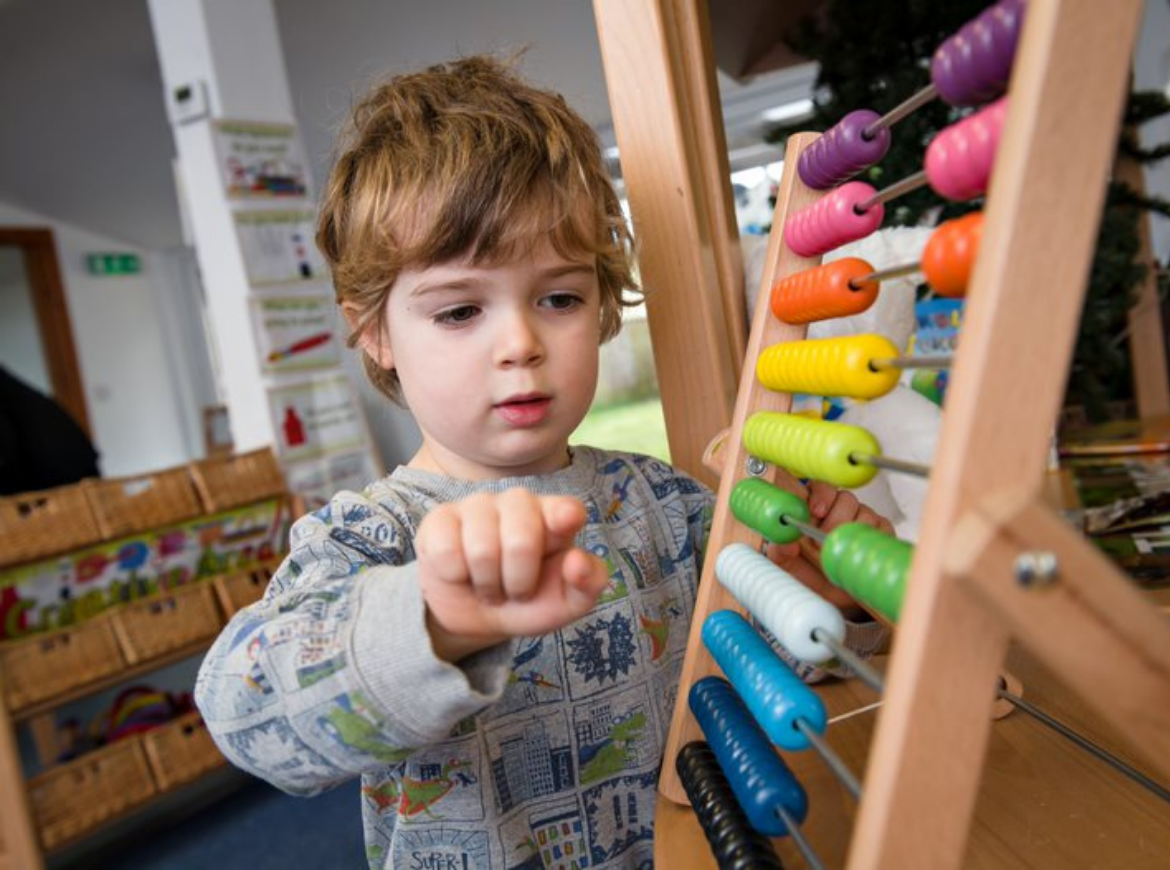
“ ”
Neilam Ahmed, lead speech and language therapist for early years prevention and intervention at Sandwell and West Birmingham NHS Trust, explains how understanding which children had issues was simply the starting point to getting them the help they required. “We know from research that good quality early intervention is crucial for improving outcomes for children. So looking at what was happening after a child had been screened would help us provide the most effective support for children with SLCN as soon as issues were identified. This was the start of our increased emphasis on preventive pathways to improve the development of children’s speech, language and communication in Sandwell.”
The project team found that some children screened with WellComm who scored amber or red were routinely being referred to Sandwell and West Birmingham NHS Trust’s specialist speech and language service. At the same time, the universal services available to all early years teams were not routinely used and the common pathway for supporting practitioners concerned about children’s speech and language development were not always followed.
“This contributed to delays before a child’s first appointment, where some families would be offered advice and redirected to the appropriate universal services in their community,” Neilam added. It was discovered that 20% of all children referred were presenting with issues that could have been dealt with by non-specialist interventions.
“We wanted our early years teams to be supporting children from the moment their WellComm screening was complete and The Big Book of Ideas is the ideal next step,” she adds.
The Big Book of Ideas is a collection of 150 targeted interventions included in the WellComm Toolkit. Once a profile has been drawn up for each pupil, The Big Book of Ideas provides focused teaching and intervention activities to make it easier for support to be put in place for children with speech and language difficulties.
“We needed to encourage early years practitioners to use The Big Book of Ideas in their settings to ensure interventions were provided to children in a timely way so they could benefit straight away. This would also allow our specialist speech and language services to focus on those children in need of more tailored support.”
Putting targeted support into action
Key to the success of the Sandwell Keeps Talking initiative was to put an end to teams working in isolation and raise awareness of how everyone involved could support children with SLCN. This eliminated duplicated efforts and helped ensure all practitioners felt confident to work with children to improve outcomes.
“For the first time, we brought people from across the sector together, either virtually or face-to-face. This included practitioners from nurseries and schools, health and community-based services all working together towards agreed outcomes,” Neilam continues.
“Having all these agencies involved was critical, like putting fuel in the engine of change for children with SLCN. We began to understand fully any barriers or concerns early years practitioners might have around implementing interventions and could problem-solve together to overcome them.”
Sandwell’s Early Years team and speech and language therapy service worked in partnership to develop a comprehensive training programme, delivered online due to Covid restrictions, which was free to all early years practitioners who wanted to take up the opportunity.
“The training provided general speech and language therapy support, from effective observation to positive interventions, and encouraged people to see how the Big Books of Ideas should be the first port of call for supporting children’s communication needs,” says Neilam. The aim was to upskill the wider early years workforce and help practitioners improve outcomes for children’s speech and language collaboratively.
“There had been a perception that to put a support programme in place for an individual child struggling to communicate meant staff would be diverted from other responsibilities,” says Dal Malhi, Early Years Advisory Teacher at Sandwell Metropolitan Borough Council.
“The training helped all involved to see how easy it was to include activities from The Big Book of Ideas into regular play time. This might be repeating phrases back to develop a child’s sentence formation or encouraging them to use prepositions while they’re painting, counting or playing with water.”
A named communication and language lead was also established in every early years setting to strengthen the focus on early intervention. Local online drop-in sessions were launched so practitioners had somewhere to go to ask questions, seek advice and share examples of best practice on how to make good use of The Big Book of Ideas.
“The impact was clear to see. As the confidence of our early years teams grew, so did the communication skills of the children in their care,” says Neilam.
“ ”

Signposted support for parents and carers
To accelerate the impact of the scheme, Sandwell Keeps Talking was then extended beyond early years professionals out into the community.
“We knew our Children’s Centres could help us engage more directly with parents of children who might not be attending a local nursery or childminder. But we needed to change the view that the services being provided in these centres were only for families in crisis,” says Neilam.
It was agreed that Sandwell’s health visitors would adjust the language they used when talking to parents and new imagery was used in marketing materials. This encouraged families to see Children’s Centres as places where universal services could be accessed, including help with children’s speech and language development.
“By simply asking parents if they would be happy to have someone from the local Children’s Centre call and explain what they do, rather than mentioning specific services from the outset, we saw more families willing to explore the wide range of support available,” Neilam explains.
The project team worked with Sandwell’s Family Information Service to launch a tranche of online speech and language focused materials that practitioners and parents could access easily. Packed with information and support for families and early years professionals, the website was designed to point parents towards details such as developmental norms for 1 to 5 year-olds, funding options, links to other family services and contact numbers if they had concerns and wanted to speak to someone directly about their child’s communication needs.
Dal Malhi adds, “When you make information such as the speech and language ages and stages easily accessible to parents, they suddenly understand that just because their child is speaking at the same level as their friends, doesn’t mean they are within the national norm or that they don’t need some extra help.”
Improving outcomes for children
Sandwell Keeps Talking is now at the very heart of children’s speech and language development throughout the area. There is a more consistent approach to early intervention, and practitioners have the knowledge and tools to ensure children have the communication skills they need to thrive when they start school.
A ‘Watchful Eye’ document has been produced collaboratively by Alice Berry, Manager Inclusion Support Early Years, Neilam Ahmed and Dal Malhi, which forms part of the SEND Transition Plus Pathway. “This valuable document is used extensively by early years practitioners to record observations, implement support with clear outcomes for children and measure the impact on speech and language development over time,” says Alice Berry.
Every child is screened routinely with WellComm to identify issues and monitor progress. Those who require targeted support are now more likely to be directed to the appropriate local services and Sandwell’s Speech and Language Therapy Service can focus on helping those children who need more specialist support.
Families get practical guidance on activities they can incorporate into their home lives to develop their child’s communication skills and they know who to call if they need any additional advice.
Sandwell Keeps Talking is part of a national drive to improve children’s speech, language and communication across the UK. Its success is supported by key partnerships with charities such as I CAN and the National Literacy Trust and the programme continues to evolve to meet the changing needs of early years teams, children and their families.
“We want Sandwell Keeps Talking to be on everyone’s lips,” says Neilam. “With our early years practitioners, families and community-based teams working together, more children are going through the school gates ready to learn. The impact of that will last a lifetime.”
“ ”
You can visit the Sandwell Keeps Talking information page here and click here to find more information on how the WellComm Toolkit (available in two versions – Early Years and Primary) could support speech and language provision in your area.

